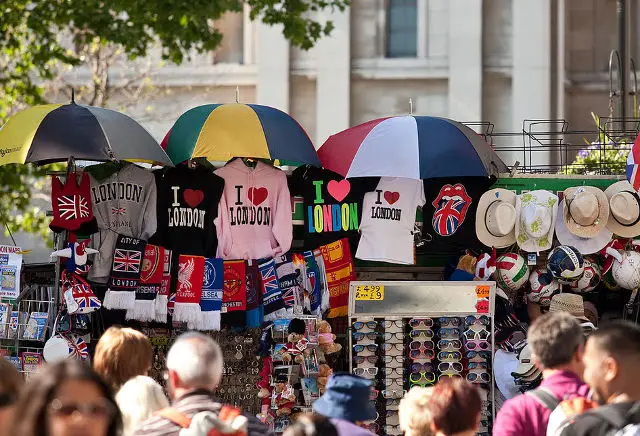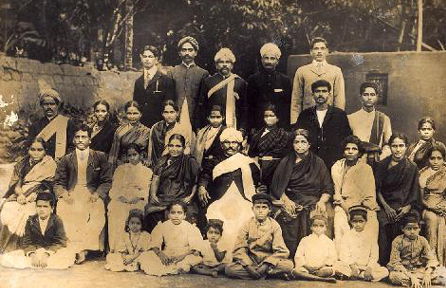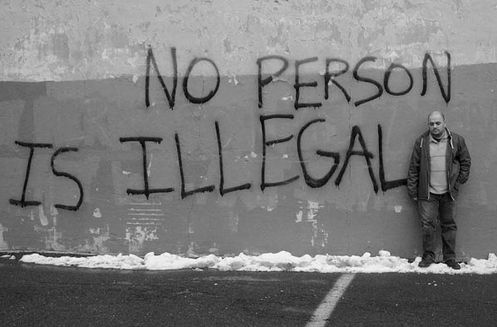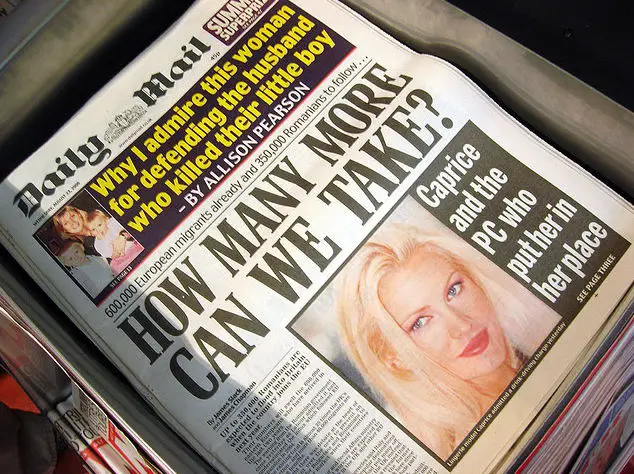Jonathan Dodd‘s latest column. Guest opinion articles do not necessarily reflect the views of the publication. Ed
There’s been a lot of discussion about immigration lately. Many politicians have been forced to make speeches about this, and I can’t think of a single occasion when one of them actually made any sense or put forward a realistic solution. Immigration is a thing. It’s slippery and indefinable and it certainly can’t be fitted into a box or even a wheelbarrow. We like to feel that we should have some semblance of control, and we instinctively want to crack down on anything that eludes the very idea of control.
I wish to state right here and now that I have absolutely no views on immigration whatsoever, and what follows reflects the views of no other person or group of persons or their views, no matter what they’re called or where they come from. I just think it may be time for a succinct summary of what we don’t know and can’t control, and a few far-fetched and ridiculous thoughts on the matter that are unlikely to add anything to the current discussion.
A long time can mean a lot of things
I feel much better for that. First of all we need some definitions. Immigration refers to the movement of a person or persons, who is/are recognised as originating in one place, to another place that is recognised as another place. This movement has to be proved to be a one-way trip, and the person needs to remain in the destination place for a long time. The definition of a one-way ticket is fuzzy, and a long time can mean a lot of things.

An immigrant therefore behaves differently to a tourist, who is usually a person who goes to another place with the intention of taking several photos, behaving differently and wearing different clothes for a while, and then returning to their normal place and habits a pre-defined and relatively short time later. A tourist is usually intent on spending money in their temporary destination rather than earning any.
We can also rule out anyone who never goes anywhere
I think we can rule out tourists from this definition, even though immigrants have been known to go on holiday. We can also rule out anyone who never goes anywhere. Another grey area is the group of people who move to another country but don’t intend to work, like rich people or retired people (sometimes, but not always the same thing). And there are refugees, who we all sympathise with, fleeing from natural or other disasters. As long as there aren’t too many of them.

There are also rich people who can live where they want because they can run their businesses from anywhere. These people, sensibly, manage their locations with a close eye on how much of their earnings they can keep and how much tax they would have to pay. In some ways this makes perfect sense, and in other ways it’s very unpopular. But that’s another discussion and another example of slippery indefinableness.
Footballers are usually welcome
Immigrants are often sorted into three groups. The first group are those who work in their new country. They are either characterised as being vital to keep the economy going, or foreigners who lower the rates of pay, or people who steal jobs that indigenous people could or should do, or a necessary evil because we don’t seem to be able to train our own people to do those jobs. This argument varies according to the jobs. In the NHS it’s always good, in terms of plumbing or care or farming it’s complicated, but footballers are usually welcome, as long as they score lots of goals.

The second group of immigrants are those who don’t work. It’s inevitable that some immigrants won’t be working at any given time. Some may have become ill or injured at work, some may have arrived in this country without the ability to work, and some may have decided that the benefits system is so wonderful that they never need to work. This group varies from a tiny minority to a very large number (although never defined) depending on what figures you want to make up at the time.
Everyone agrees that they aren’t playing fair
Of course, there will be immigrants who aren’t expected to have to work. Parents of young children come into this group, as do carers for disabled family members. Many immigrants want to bring their families to their new country, and some of those won’t be working. I suspect the proportion of non-working immigrants is probably similar to or lower than the indigenous population, but I may be misguided or wrong here. I often am, either or both.

The third group of immigrants are those who shouldn’t be here, and everyone agrees that they aren’t playing fair, because they make a confused situation even more difficult to comprehend. These are classed into several sub-groups. There are those who arrive and are declared ‘economic migrants’, because they want to work but we don’t want to let them.
But they have very good lawyers
There are those who are called ‘asylum seekers’. These are saying that they got away from their own countries by the skin of their teeth and would be tortured or killed if we sent them back. We actually have no idea whether their stories are true or not, and that’s why awe keep them for an indeterminate time trying to find out. We think it would reflect badly if we sent someone back and they were tortured or killed, so usually we play safe. But everyone suspects that probably most of them are trying it on in some way or another.

Then there’s a group of people who we want to send back but there are long, very expensive and tortuous legal processes to go through before we can actually put them on a plane. We all agree that these people really are trying it on, but they have very good lawyers, and unlike the countries they come from, we believe in the rule of law.
Years of fleecing their own people
There’s another sub-group of these who are people we don’t want, but we’ve taken them in because nobody else wants them either. These include ex-leaders of horrible regimes, and it seems somehow to salve our consciences that they’re extraordinarily rich, from years of fleecing or terrorising their own people.

Finally, there’s a group we call ‘illegals’. We have no idea who these are or where they came from, or how many there are. They have no papers or legal status or rights. They keep their heads down and avoid wherever possible any contact with the authorities. They live a shadowy existence, hand to mouth, and they have no hope of integrating or living any kind of normal life.
When do you stop being an immigrant?
We haven’t even got close to a definition of what makes an immigrant. Lots of them intend to go home at some point, but circumstances change. Some expect to work a whole lifetime and go back to retire. Some start going through the citizenship process as soon as possible, and others don’t bother. Some appear to integrate fully, but still support the sport teams of their original countries. Some people think that is scandalous.

Are they immigrants if they work here for a year and go home? Are they immigrants if they arrived twenty years ago and think of themselves as English – as English as their children who were born here and know no other life? When do you stop being an immigrant? That’s another good question. Because we would have to ask a lot of questions of many people who don’t think they are, if we ever managed a working definition.
The thing that used to be called our bloodline
Any definition of English, or British, is bound to end in an argument at least, if not a fight. And the truth is that none of us can claim to be truly English or British, because none of us can be sure of our genetic heritage, the thing that used to be called our bloodline. One day our understanding of DNA will no doubt become sophisticated enough, but we’re not there yet, thank goodness.

I know I’m lucky to have grown up in a liberal democracy that recognises the rule of law. I feel that I was fed the idea of fairness from birth, and I don’t understand what horrors make people forsake their own homelands and take such risks to get here. To us, immigration is getting a job in Australia or the USA. We just don’t understand, and we fear a deluge of people who aren’t like us. At the same time we know we’re not being fair, as we should, and we complain that other countries are being less fair than we are. And we feel guilty, because modern media show us their suffering in HD.
Perhaps we fear most the possibility of losing the precious defining comfort of our own homeland
If you have been, thank you for reading this.
Image: malias under CC BY 2.0
Image: Diliff
under CC BY 2.0
Image: emailamyd under CC BY 2.0
Image: dullhunk under CC BY 2.0
Image: Public domain uploaded by Linguisticgeek under CC BY 2.0
Image: mig under CC BY 2.0
Image: somethingness under CC BY 2.0
Image: mattjnewman under CC BY 2.0





